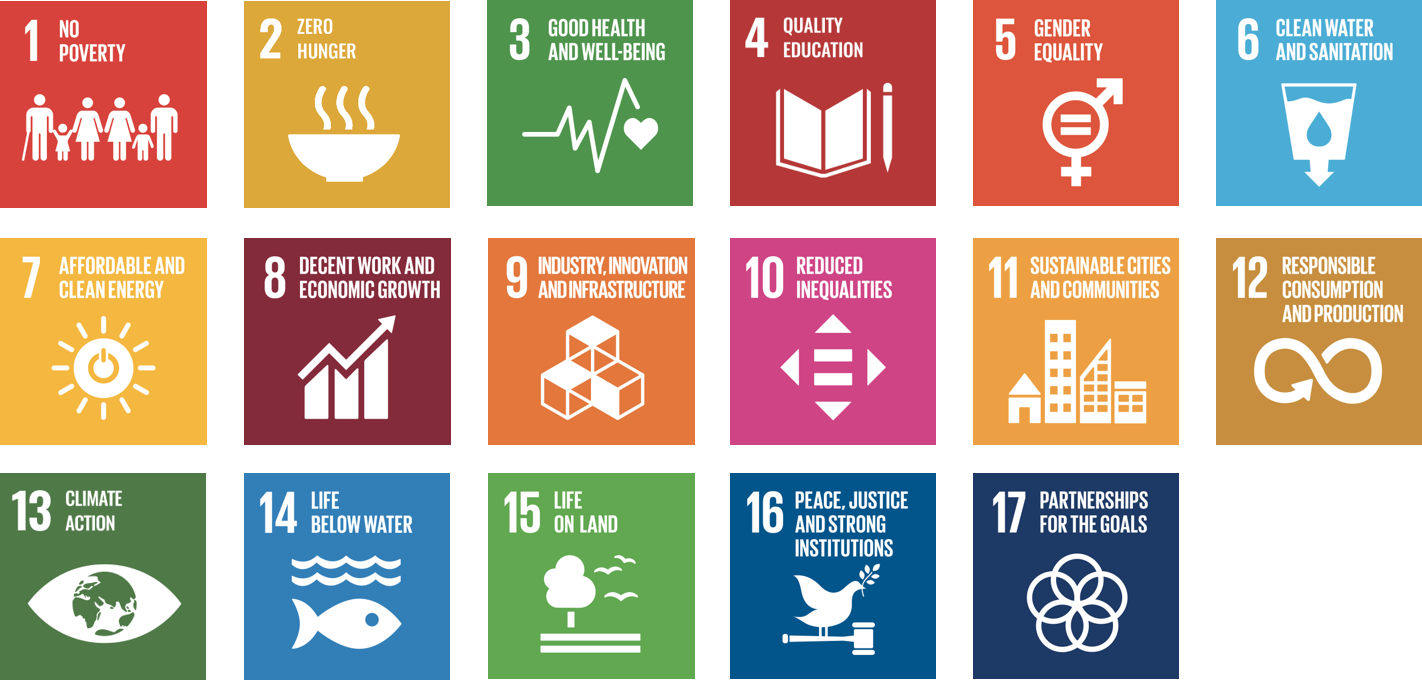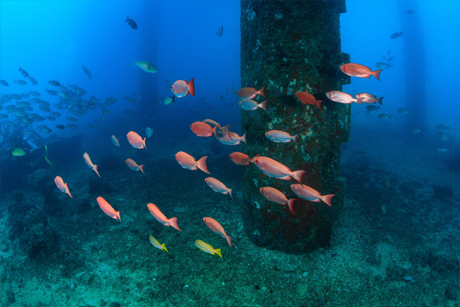
Malaysia’s Sustainable Development Goals

Malaysia together with 192 nations adopted the 2030 Agenda for Sustainable Development (2030 Agenda) at the United Nations General Assembly in New York on 25 September 2015. This is a global commitment towards a more sustainable, resilient and inclusive development, with 17 Sustainable Development Goals (SDGs) and 169 targets.
Sustainability in Malaysia’s Upstream Sector
Malaysia Petroleum Management (MPM) is focused on finding ways to create a safe and sustainable upstream industry in Malaysia while ensuring a continuous and reliable supply of affordable energy. Sustainability is at the core of MPM’s strategy to develop resources, conduct and grow the business in ways that contribute positively to society and the environment. Some of MPM’s initiatives are the Rig-to-Reef and Carbon Capture and Storage projects.

Rig-to-Reef (R2R)
The Rigs-to-Reef (“R2R”) journey began about 20 years ago in 2004, when PETRONAS successfully repurposed the storm-damaged Baram-8 platform into an artificial reef in Sarawak. Over a decade later, in 2017, the Kapal platform structures were reefed near Pulau Kapas, Terengganu as well as D30 and Dana, off-the-coast of Sarawak. At the end of 2023, we will be completing another R2R project offshore Terengganu, bringing this to 5 platforms that have been repurposed.
R2R has been scientifically proven to restore, create and enhance marine habitats, enhancing marine biodiversity. Through monitoring the reefed structures, in collaboration with the Department of Fisheries, an increase of 30 per cent in fish species in the area was observed, with an average of 10 per cent growth of food for fishes annually. At the Pulau Kapas reef site, this translates to approximately 3,000kg more fish in the area.
Apart from enriching marine ecology, R2R also promotes eco-tourism and recreational industries, serving up new scuba diving destinations and fishing spots for anglers. Additionally, R2R also contributes towards the National Food Security Policy Action Plan as driven by the Ministry of Agriculture and Food Security. To ensure that the benefits will continue to be enjoyed by future generations, PETRONAS is also actively collaborating with the Department of Fisheries on a 10-year Malaysia Master Reefing Plan, with the culminationof creating multiple ‘reefing villages’ throughout Malaysia.
R2R supports PETRONAS’ Statement of Purpose and is aligned with PETRONAS' Sustainability Agenda and the Net Zero Carbon Emissions by 2050 pathway. It is also an example of how PETRONAS is committed to conduct and grow its business in ways that can contribute positively to society and the environment.
Carbon Capture and Storage (CCS)
PETRONAS has developed an emission reduction roadmap for its operation in Malaysia to support its Net Zero Carbon Emissions (NZCE) by 2050 aspirations.
PETRONAS has developed an emission reduction roadmap for its operation in Malaysia to support its Net Zero Carbon Emissions (NZCE) by 2050 aspirations. In achieving this, PETRONAS continues to push ahead with initiatives to drive improved operational efficiency while reducing continuous flaring and venting from operations.
In Malaysia’s Upstream sector, MPM has embarked on the development of Carbon Capture and Storage (CCS) projects to enable the monetisation of high CO2 fields with first injection planned in 2026. This first CCS project is expected to reduce CO2 emissions by 3.3 million tonnes per annum, roughly equivalent to the emissions produced by 850,000 cars.




